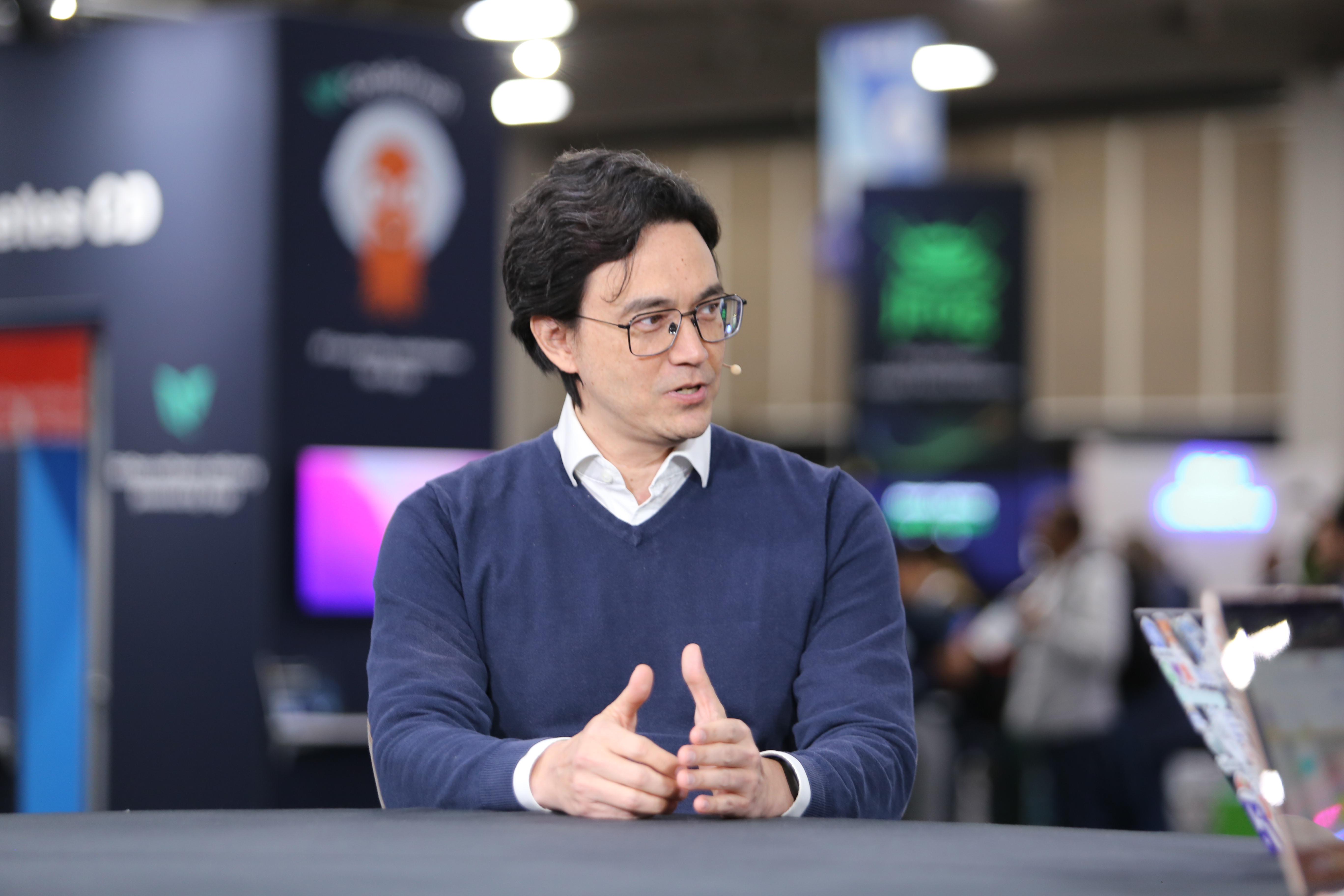 CLOUD
CLOUD
 CLOUD
CLOUD
 CLOUD
CLOUD
Recent advancements in new cloud-native technologies are transforming how Kubernetes applications are deployed and managed. These cloud-native technologies simplify multicloud performance while also enabling organizations to more easily navigate complex ecosystems and foster open-source, community-driven collaboration.
“As people think about … adopting more cloud-native ways of deploying these [multicloud] applications, they see that they have an opportunity to take … specific services and find the best price performance per service across each of those clouds,” said Jay Jenkins (pictured), chief technology officer for cloud computing at Akamai Technologies Inc. “But now we have a more complex problem that we need to be able to solve in order to make sure that people have an opportunity to build the best applications that they can.”
Jenkins spoke with theCUBE Research’s Rob Strechay and Savannah Peterson at KubeCon + CloudNativeCon NA, during an exclusive broadcast on theCUBE, SiliconANGLE Media’s livestreaming studio. They discussed how to simplify multicloud performance, as well as how Akamai wants to create new compute possibilities for developers and platform engineers and, at the same time, help organizations to better manage costs and sustainability objectives. (* Disclosure below.)
Enterprises are moving beyond simply adopting multiple clouds. A new wave of multicloud strategies, such as Kubernetes technology, allows organizations to leverage the best features of different cloud platforms with services that can be moved to the edge while minimizing risks like vendor lock-in. But, as organizations explore how to integrate new cloud-native technologies, challenges persist around managing complexity.
“Just like Akamai did with our content delivery network, getting content closer to those users, we want to do the same with compute,” Jenkins said. “A requirement for that is the Kubernetes platform, because it allows you to have these services that you can actually move to the edge. But, it’s kind of difficult to manage that across multiple clouds.”
This challenge is creating the need for tools to help developers navigate the ecosystem, which is why Akamai recently announced its application platform. Akamai’s app platform simplifies Kubernetes deployment and integration with other open-source tools, according to Jenkins.
“[The Akamai app platform] allows developers or platform engineers to get quickly started not just with Kubernetes on Akamai, but also with the other associated upstream projects,” Jenkins said. “It’s super exciting to be able to get people to get quickly started with Argo or with key management, secrets management … and everything needed to take away that toil from those developers and automate as much of that as possible … to get those things set up quickly.”
The Akamai app platform allows developers to set up comprehensive platforms in minutes, avoiding months of manual configuration and helping to simplify multicloud performance. At the same time, it gives developers the ability to customize it for their requirements.
“Really what we want to do is make sure that we …’Keep the simple things simple, but make sure the complex things are possible,’” Jenkins added. “We also want to make sure that we … give [workload] portability and are really supporting an open network in the truest sense of the word.”
Akamai is expanding its vision of distributed cloud. Recognizing the need for support from the open-source community, the company has increased its support for the open-source ecosystem by pledging $1 million to Cloud Native Computing Foundation projects.
“[This community] is going to be able to help us solve problems that we can’t solve on our own, realizing that all of us are smarter than any one of us,” Jenkins said. “It’s important to give back, and it’s important to make sure that we … can be a part of the conversation and be a part of this community.”
This investment aligns with the Akamai’s vision of building a collaborative, problem-solving environment. Such initiatives are vital for organizations adopting Kubernetes and other open-source solutions at scale.
As organizations scale their workloads and integrate AI-driven models, sustainability has become a critical focus, according to Jenkins. Akamai is exploring how edge computing and workload portability can play a pivotal role in sustainable practices.
“It’s important to get users as physically close to the device as possible for many reasons … the first one is improved latency. By being able to get this at the access edge where Akamai has points of presence, you can actually reduce [latency] to a single-digit millisecond latency to users in those locations,” Jenkins explained.
Sustainability initiatives often overlap with cost-saving measures, making this dual objective an impactful goal for enterprises. By enabling latency-sensitive applications to run closer to users or selecting locations based on carbon emissions, organizations can balance environmental and financial priorities.
“Having a sustainability agenda is also having a cost efficiency agenda,” Jenkins said. “By designing a more sustainable system, you’re going to not only be better for the planet but save money and probably make your team a lot happier.”
Here’s the complete video interview, part of SiliconANGLE’s and theCUBE Research’s coverage of KubeCon + CloudNativeCon NA:
(* Disclosure: TheCUBE is a paid media partner for the KubeCon + CloudNativeCon NA. Neither Red Hat, the headline sponsor of theCUBE’s event coverage, nor other sponsors have editorial control over content on theCUBE or SiliconANGLE.)
Support our mission to keep content open and free by engaging with theCUBE community. Join theCUBE’s Alumni Trust Network, where technology leaders connect, share intelligence and create opportunities.
Founded by tech visionaries John Furrier and Dave Vellante, SiliconANGLE Media has built a dynamic ecosystem of industry-leading digital media brands that reach 15+ million elite tech professionals. Our new proprietary theCUBE AI Video Cloud is breaking ground in audience interaction, leveraging theCUBEai.com neural network to help technology companies make data-driven decisions and stay at the forefront of industry conversations.